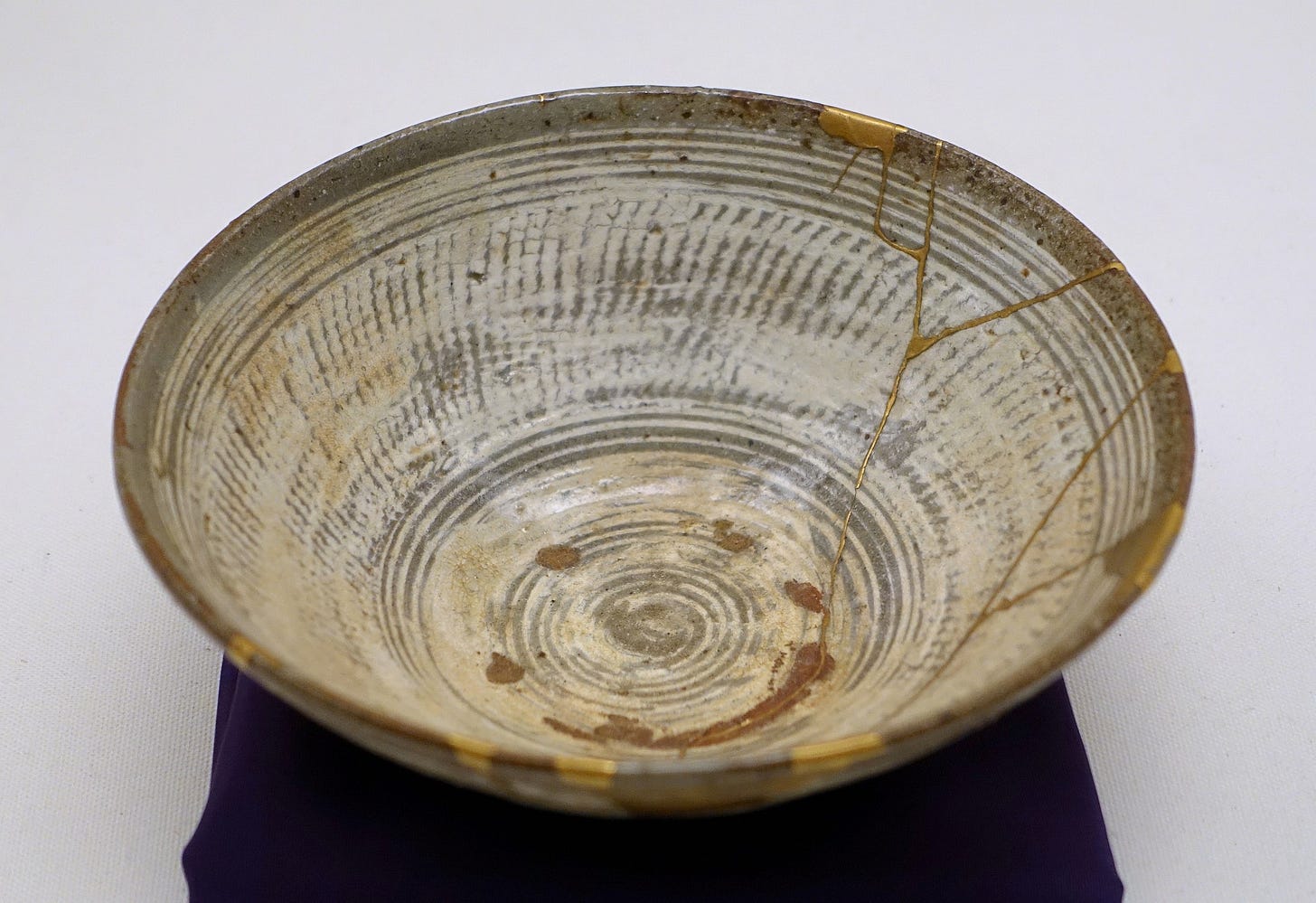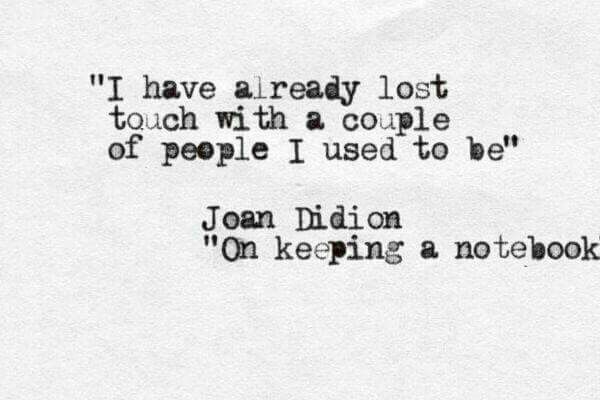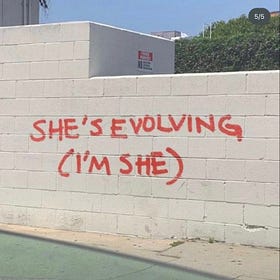Last night, while cleaning out a forgotten drawer, I found a photograph of myself from ten years ago. I was sitting on a Hawaiian beach, mid-laugh, pineapple drink in hand. For a moment, I didn't recognize the person captured there—this stranger wearing my face but not my expressions, not my knowing.
I sat cross-legged on my bedroom floor, studying this artifact of a former self. Who was she, this girl with the bangs that never quite behaved and the anxious eyes despite the genuine smile? What thoughts occupied her mind that night? What worries kept her up at 3 AM? What dreams did she harbor that I've since abandoned or, perhaps more startlingly, fulfilled without ceremony?
It's disorienting to realize how thoroughly we can outgrow ourselves without any conscious acknowledgment of the transition. No ritual marks these passages. No one pulls us aside to say, "Today, you are no longer the person you were." We simply wake up one morning subtly transformed, carrying different thoughts, responding differently to the world—and rarely notice until confronted with evidence of our former selves.
I used to think of a lifetime as a singular arc—one story with a beginning, middle, and end. Now I wonder if we don't live many lives within one body, shedding selves like a snake sheds skin, leaving behind hollow forms of who we once were.
My twenties alone contained at least three distinct "me's": the earnest college student certain that a “women’s studies” degree would somehow save humanity (and herself); the disillusioned recent graduate working a soul-crushing job while nursing creative ambitions after midnight; the slowly awakening adult who packed up her tiny car with whatever she could carry and moved to Vegas, leaving the small town she grew up in in the rearview. Each version believed herself to be the definitive one. Each was merely transitional.
Montaigne wrote, "I am myself the matter of my book." But which self? Reading his essays, I sense the multiplicity—how the Montaigne who began the essays was not the same man who finished them. He knew this, I think. "I do not portray being," he admitted, "I portray passing." Isn't that the truest thing? We are always in process, always passing from one state to another, never quite being any fixed thing at all.
I have a soft spot for Montaigne—he’s someone I ponder often, like with this piece.
The strange part isn't that we change—it's that we change without noticing. Major transformations happen beneath the surface of our awareness, like continental plates shifting imperceptibly until one day we realize the landscape of our inner world has been utterly rearranged.
I wonder sometimes what causes these invisible evolutions. Is it accumulation—the slow gathering of experiences until they reach some critical mass that tips us into a new way of being? Is it erosion—the gradual wearing away of certainties until we stand on different ground? Or is it something more mysterious—some inner intelligence that knows when we're ready to shed an outgrown self?
Looking at this photograph, I try to trace the path from her to me. What books reformed my thinking? Which conversations altered my course? What heartbreaks taught me to love differently? What friendships showed me versions of myself I couldn't see alone? The catalysts are countless and often seem trivial in isolation—a chance remark, a poem encountered at the right moment, a stranger's kindness, a personal failure finally faced honestly.
There's a Japanese term, kintsukuroi, for mending broken pottery with gold. The breaks aren't hidden but highlighted, honored as part of the object's history. I wonder if we might think of our transformations this way—not as leaving behind broken selves but as integrating fractures into something more complex and valuable.

And yet, these former selves aren't entirely gone. They persist as echoes, as tendencies, as unexplained reactions to certain triggers. Sometimes I catch myself responding to a situation exactly as I would have at twenty-two, and I think: ah, there she is, that earlier me, still alive somewhere in the architecture of who I've become.
Perhaps we never fully shed our former selves but rather build upon them, like a palimpsest—those ancient manuscripts where new text was written over partially erased older text, creating a document where multiple writings exist in the same space. The original writing, though faded, continues to influence the whole.
I find this comforting somehow—the idea that nothing is ever truly lost, that even the selves we outgrow remain as whispers, as foundation. The child who collected rocks and seashells and sort of believed in magic. The teenager who wrote bad lyrics and felt everything with excruciating intensity. The young adult who made terrible romantic choices but learned something essential from each mistake. They're all still here, incorporated into the current iteration of me.
Looking at this photograph, I'm most struck by remembering what this former self believed would save her. She was convinced that if she could just get her marketing agency off the ground, just find the right relationship, just move to the right high-rise apartment with city views, just achieve the right milestone—then something essential would lock into place. The low-grade anxiety that hummed beneath her days would finally quiet. She would arrive at some imagined destination called "enough."
Ugh, the tenderness I feel toward her now. The certainty with which she invested in those future moments—pinning her hopes on achievements and circumstances as if they were talismans against the fundamental uncertainty of being alive.
Some of those dreams actually materialized. I did have a successful agency (until covid hit). I did find love that worked. I did eventually move to that high-rise she dreamed of. And while these things brought genuine joy, none of them "saved" me in the way my former self imagined they would. The salvation, when it came, was subtler—not in the achievements themselves but in slowly learning to inhabit my life as it unfolded, to stop placing conditions on my peace.
Other dreams dissolved so gradually I barely noticed their departure. Ambitions that once seemed non-negotiable quietly excused themselves from my life when I wasn't looking. And strangely, I don't mourn them. They belonged to that former self, not to me—though "me" feels like such a slippery concept now, like trying to hold water in cupped hands.
I wonder if there's a ledger somewhere in the universe that records these transformations—these deaths and births of selves that happen while we're busy making dinner or answering emails or standing in line at the pharmacy. Some divine bookkeeper noting: "On this day, she finally stopped believing she needed to be exceptional to be worthy of love" or "Here, he let go of a twenty-year grudge without even recognizing it as a significant moment."
Because that's how it happens, isn't it? Not with fanfare but in ordinary moments when something shifts and settles differently within us. The day I realized I no longer defined myself primarily through work. The morning I woke up and noticed I hadn't thought about that particular someone in months. The afternoon I found myself responding with compassion to someone who would have triggered defensive anger in my former self.
No one handed me a certificate marking these passages. No ritual acknowledged these quiet metamorphoses. They happened in the background of my life, like apps running behind the main screen, changing the operating system without my conscious participation.
It's only when you look back that you realize how far you've come—how many lives you've already lived in the same skin. This backward glance is perhaps the only ceremony we get. These moments of recognition when we suddenly perceive the distance traveled.
I try to imagine what my current self will look like to me in another seven years. What anxieties am I harboring now that will seem quaint to my future self? What certainties am I clutching that she will have gently released? What dreams am I investing in that she will have either realized or forgotten without drama?
I hope she'll look back at me with the same tenderness I feel toward the self in this photograph—not with embarrassment or judgment, but with a kind of loving recognition. Oh yes, there she is, doing the best she can with what she knows right now. Still figuring it out. Still becoming.
There's a paradox in all this: we are both continuous and discontinuous with our former selves. The "I" who began this essay is not precisely the same "I" who is finishing it. Even in the course of these hours, microscopic transformations have occurred. New neural pathways have formed. Cellular regeneration has continued its quiet work. Subtle shifts in perspective have transpired through the very act of writing.
And yet, there is something that persists—some thread of consciousness that witnesses these changes, that can look at a photograph from a decade ago and say "me" despite the profound differences. What is this witnessing presence that remains while everything else transforms?
I don't have an answer, only more questions. But I find myself increasingly interested in this process of becoming—this continuous shedding and reforming that happens beneath the surface of awareness. I want to become more conscious of my own evolution, to catch myself in the act of transformation rather than only recognizing it in retrospect.
Perhaps this is what mindfulness really means—not just attending to the present moment, but attending to who we are becoming in each present moment. Noticing the subtle shifts. Honoring the former selves we're always in the process of outgrowing.
I put the photograph back in the drawer, but not before taking a long last look at that former self. "Thank you," I whisper to her, though I'm not entirely sure what I'm thanking her for. For persisting? For changing? For carrying me to this moment where I can look back and recognize both the distance traveled and the thread of continuity?
Perhaps I'm simply acknowledging what she couldn't yet see: that the very things she thought would save her weren't what she needed saving from, and that the person looking at her photograph years later would understand this with a compassion she couldn't yet access—this tenderness that comes from recognizing how many selves we shed on the way to becoming who we are, however temporarily, right now.
Take care of (every version of) yourself.
xoxo
this essay pairs well with —
the self-pursuit experiment: what happened when i stopped giving a f*ck about everyone else's path
I remember the first time I truly felt lost. It wasn't the geographic disorientation of wandering down unfamiliar streets or the momentary panic when you can't find your car in a sprawling parking lo…
the lost art of doing it for yourself
I’m still pretty new to Substack, which means I’m in my “screaming into the void” phase. I consider this paying my dues in some respects. We all start from zero and we all have to do it. But it remin…
the art of outgrowing yourself
I’m turning 36 this week so pardon me while I go through all the existential spirals ツ


















Beautiful reflection on growth. It is simultaneously too easy to forget who we once were and also so difficult to actively feel like we are changing. But it is important to acknowledge both and thank you for sharing and reminding us all!
so thought provoking, love this 💖